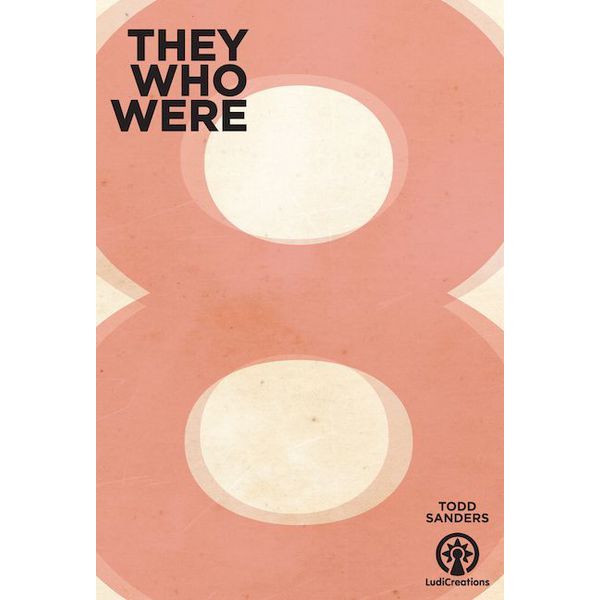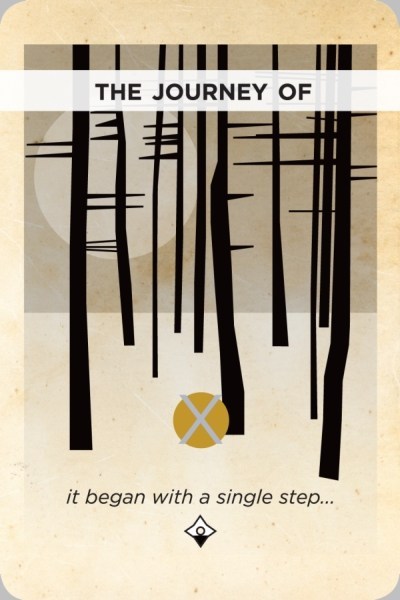They Who Were 8: A Game of Deities, Infamy, and Glory

You are a bard, attempting to preserve your favorite god for posterity, by proclaiming their works of glory and a few misdeeds.
They Who Were 8, from LudiCreations, features some eye grabbing graphic design and artwork. But how exactly does the game play?
Gameplay
Each player is randomly dealt two god tiles. Each god has its own unique ability which can be used once per game. You set one tile to your left and one tile to your right. The god on your left will be paired with the god nearest to your left which is controlled by an opponent player, while your right god is paired with the closest to your right. At the end of the game, the pair with the most combined victory points is the leading pair, while the player whose god in the leading pair has the lowest score, is the winner.
Players are each dealt a hand of three cards. The infamy and glory tokens are placed in the center of the table. Each round, every player plays one card. These cards will add or remove infamy and/or glory tokens, or move them from one card to another. Each card also says whether you must play it on yourself, on another player, or on either.
Once everyone has played their card, you choose one card still in your hand to pass to the player on your left. The discard pile is then shuffled back into the deck and each player draws back up to three cards and a new round begins.
The game ends once the supply runs out of infamy or glory tokens. Players then calculate the victory points on each god tile, adding two points for each glory token and taking away one point for each infamy token and if the god’s ability was used during the game.
There is a team variant for four players, in which there are no pairs, and you are simply trying to accumulate the most victory points across you and your teammate’s god tiles.

Review
They Who Were 8 is an enjoyable, brain teasing puzzle. Almost all the cards can only be played on other players, so there is a lot of moving pieces back and forth, trying to figure out the most efficient use of your cards and trying to balancing all the pairs in your favor.
It is a very think-y game, and some players may find it a little too esoteric, but players who do like calculating the math to ensure you control the strongest pair while also ensuring that your god in that pair is worth the fewest points, will really enjoy the challenge here. Since you are also passing a card to a player each round, you have a little bit of information out there about what they are holding. There is a lot of back and forth, trying to keep players back, and swapping tokens between tiles, and adapting your plays based off what others do.
The game does have some issues in a two player game. The majority of the cards you play have to affect other players, with some having you do things such as move a token from one player’s god to another. Obviously in a two player game, with only one player these have to affect you too, but there is nothing in the rulebook that actually clarifies this. You also miss out on some of the back and forth that makes the game enjoyable when you have only two players, the scoring mechanic plays out less interestingly, and you’re more limited in your choices.
Visually, the game has a very unique aesthetic, and the components are well made. The cards are great quality and the god tiles sturdy.
The puzzle at the heart of They Who Were 8 will not appeal to everyone. But for those who do enjoy it, it is an engaging and challenging game that plays pretty fast, with the uncertainty of which cards you will draw, keeping it fresh and unpredictable.
Pros: Visually stunning, lots of back and forth, fast game time
Cons: Definitely not for everyone, not recommended for two players
Disclosure: we received a complimentary review copy of this game.







